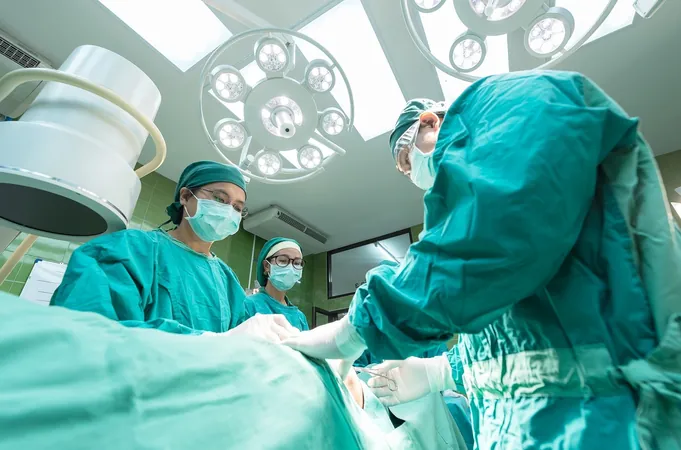
Breakthrough in Colorectal Cancer Treatment: Robotic Surgery Significantly Reduces Pain and Speeds Recovery!
2024-09-30
A groundbreaking study has revealed that robotic surgery offers significant advantages over the traditional laparoscopic approach for colorectal resections. This retrospective cohort study, recently published in the Journal of Robotic Surgery, surveyed 578 patients who underwent either robotic or laparoscopic colorectal surgery between 2018 and 2022. The results are nothing short of remarkable!
Understanding Colorectal Resection
Colorectal resection is a surgical procedure that involves removing part or all of the colon or rectum, commonly performed to treat conditions such as colorectal cancer, diverticulitis, or inflammatory bowel disease. The purpose of this surgery is to eliminate the affected portions of the digestive tract, and often to reconnect healthy sections afterward, leading to improved patient outcomes.
Key Findings of the Study
The findings of this study show that those who underwent robotic-assisted surgery reported significantly less pain during hospitalization and at one week post-discharge compared to their laparoscopic counterparts. This reduction in pain can markedly enhance the overall patient experience and satisfaction post-surgery.
Furthermore, patients who had robotic surgery required fewer opioids for pain management. This is a crucial finding, especially given the ongoing concerns related to opioid dependency and the importance of minimizing opioid use in post-operative care.
Advantages of Robotic Surgery
The robotic technique not only assists surgeons in freeing up their hands to make more precise movements but also leads to less tissue disturbance, promoting quicker healing.
Additionally, the study indicated that patients who had robotic surgery returned to work almost two days earlier than those who had traditional laparoscopic surgery. On average, robotic surgery patients resumed their jobs just 2.1 days after discharge, compared to 3.8 days for those who underwent laparoscopic surgery. This speedy return to normal activities is an encouraging outcome for both patients and employers alike.
Technological Advances in Surgery
Researchers attribute these enhanced recovery metrics to the advanced technology used in robotic surgery, which allows for greater precision and control. With multiple internal joints and improved stability, robotic arms minimize trauma to the abdominal wall, enabling faster healing and recovery times.
Future Implications
As the field of robotic surgery continues to evolve, these findings may pave the way for broader acceptance and use of robotic techniques in colorectal procedures. As always, it’s essential for patients to discuss all available options with their healthcare providers to determine the safest and most effective approach for their individual circumstances.
Stay tuned for updates on how technology is transforming healthcare and the continuous advancements being made in surgical techniques!

 Brasil (PT)
Brasil (PT)
 Canada (EN)
Canada (EN)
 Chile (ES)
Chile (ES)
 España (ES)
España (ES)
 France (FR)
France (FR)
 Hong Kong (EN)
Hong Kong (EN)
 Italia (IT)
Italia (IT)
 日本 (JA)
日本 (JA)
 Magyarország (HU)
Magyarország (HU)
 Norge (NO)
Norge (NO)
 Polska (PL)
Polska (PL)
 Schweiz (DE)
Schweiz (DE)
 Singapore (EN)
Singapore (EN)
 Sverige (SV)
Sverige (SV)
 Suomi (FI)
Suomi (FI)
 Türkiye (TR)
Türkiye (TR)